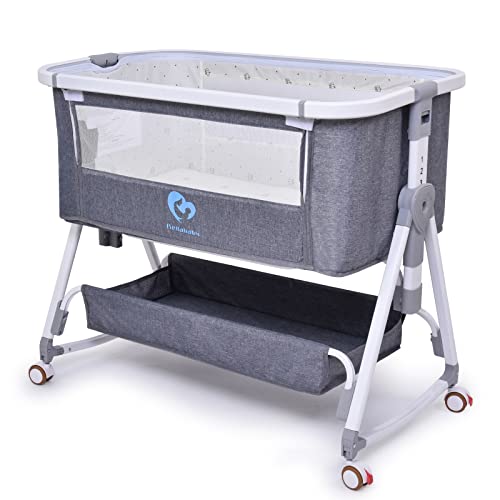Cots For Tots Explained In Less Than 140 Characters
Cots for Tots: A Comprehensive Guide to Choosing the Right Crib for Your Baby
When it pertains to preparing for a new arrival, couple of purchases are as vital as choosing the right cot for your infant. Not only does a crib offer a safe sleeping environment, however it likewise plays a necessary role in your baby's advancement. This post intends to assist moms and dads through the numerous elements of picking a cot, ensuring that they make an informed choice that fulfills their child's requirements.
Comprehending the Importance of a Safe Sleeping Environment
The American Academy of Pediatrics (AAP) emphasizes that a safe sleep environment is a considerable consider minimizing the risk of Sudden Infant Death Syndrome (SIDS). A properly picked cot can offer the security, comfort, and essential support for a growing baby. Here are several bottom lines that highlight the significance of choosing the best cot:
- Safety Standards: The cot must adhere to safety guidelines to prevent hazards.
- Convenience: Babies need a comfy sleeping surface area to promote quality sleep.
- Development Support: The right design can assist in healthy physical advancement.
Key Features to Consider When Choosing a Cot
When picking a cot, parents must examine different functions to ensure that the choice lines up with their baby's developmental needs. Below are some vital aspects to consider:
1. Safety Standards
- Product: Look for cots made from non-toxic materials and surfaces.
- Design: Ensure there are no sharp edges or protruding parts.
- Accreditation: Check for compliance with safety ratings.
2. Size and Design
- Dimensions: Cots been available in standard sizes. Make Cheap Baby Beds fits your nursery.
- Adjustable Mattress Heights: Cots with adjustable heights can accommodate your growing baby and promote much easier access.
- Portability: Consider whether you need a mobile option that can be quickly moved.
3. Style and Aesthetic
- Design Preferences: Choose a cot that matches your home decor.
- Colors and Finishes: Various alternatives are available to fit your taste.
4. Price and Quality
- Spending plan: Determine your spending plan in advance to narrow choices.
- Sturdiness: Invest in a sturdy cot that can last through numerous children, if needed.
5. Brand name Reputation
- Reviews: Look for feedback from other parents.
- Guarantee: A great warranty can be a sign of the producer's confidence in their item.
Kinds Of Cots Available
When exploring cots for infants, parents will encounter various options tailored to different requirements and preferences. Here are the most common types of cots:
Type of Cot
Description
Standard Crib
The conventional crib with a fixed style, suitable for babies to young children.
Convertible Crib
A flexible choice that changes into a young child bed, daybed, or full-sized bed.
Portable Crib
Created for simple transport, ideal for travel or little areas.
Mini Crib
A compact variation of standard cribs, suitable for homes or restricted areas.
Bassinet
A small, portable sleeping area for newborns, frequently used for the first few months.
Best Practices for Cot Setting and Maintenance
Once the best cot is picked, it is important to set it up properly and keep it to guarantee security for your baby. Here are some best practices:
- Location: Place the cot far from windows, cords, and other dangers.
- Bedding: Use a firm bed mattress with a fitted sheet and avoid pillows, blankets, or packed animals.
- Routine Checks: Inspect the cot routinely for loose parts or use and tear.
- Prevent Bumper Pads: While many parents find them visually appealing, they can introduce suffocation risks.
FAQs About Cots for Tots
1. What is the safest type of cot for babies?
The safest type is a standard crib that satisfies safety standards from organizations such as the CPSC. Search for functions like fixed sides and a firm mattress.
2. When can I move my baby to a toddler bed?
Usually, kids can move to a toddler bed around the age of 2 to 3 years, however it's vital to examine your child's readiness based on their size and capability to climb up out of the crib.
3. How often should Cots To Tots check my baby's cot?
Check the cot every few weeks to ensure all screws are tight, and there are no signs of wear or damaged parts.
4. Are convertible cribs worth the financial investment?
Convertible cribs can be a terrific investment as they adapt to your kid's development and can last for numerous years, potentially saving money in the long run.
5. What's the best mattress type for a cot?
A premium foam or innerspring mattress that fits snugly within the crib frame is suggested to guarantee security and convenience.
Picking the ideal cot is an essential choice for new moms and dads, affecting both the safety and wellness of their baby. With Cots And Tots offered, comprehending the features, types, and best practices can make this choice procedure easier. By doing thorough research study and thinking about the vital aspects laid out in this post, moms and dads can make sure a safe, comfy, and aesthetically pleasing sleeping arrangement for their little one. Investing time in this option not only sets the phase for safe sleep but also supports the baby's advancement throughout those vital early months.
